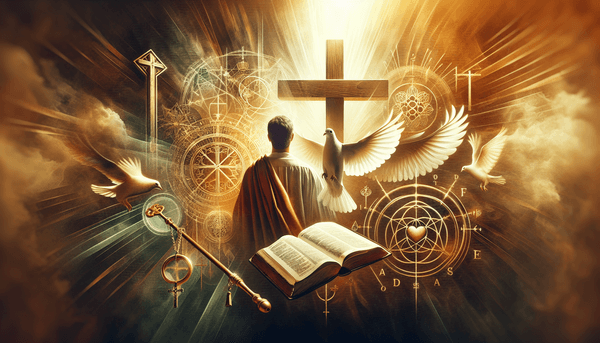The Divinity of Jesus
The question of Jesus' divinity is a cornerstone of Christian theology. Many believe that Jesus Christ is both fully human and fully divine—a mystery that is central to the faith. John's gospel begins with the profound assertion that 'In the beginning was the Word, and the Word was with God, and the Word was God' (John 1:1), establishing Jesus as an integral part of the divine. This same Word 'became flesh and made his dwelling among us' (John 1:14), signifying the incarnation. Philippians 2:6-7 speaks to Jesus' nature, not clinging to his divine status but humbling himself in human form. Colossians 2:9 declares that 'in Christ all the fullness of the Deity lives in bodily form,' further affirming his divine nature. Hebrews 1:3 describes the Son as 'the radiance of God's glory and the exact representation of his being,' upholding the belief in Jesus as God incarnate. These scriptures form the bedrock of Christian conviction that Jesus is the divine Son of God, a belief that differentiates Christianity from other religious traditions. For an example of living out one's faith in recognition of this divinity, one might reflect on the lessons from Elijah's story, an exploration of faith in action.
Conclusion
Through this exploration of Jesus' prayer life, the qualifications for church leadership, the divine nature of Jesus, and the presence of God, we have touched upon the profound and sacred dimensions of the Christian faith. Jesus' example of prayer underscores the importance of a personal relationship with the divine, while the standards for church leaders reflect the moral and spiritual integrity essential for guiding the faithful. The mystery of Jesus' dual nature as human and divine remains a cornerstone of Christian theology, and the omnipresence of God offers comfort and assurance to believers. As we consider our own spiritual defenses in the face of life's challenges, the Armor of God provides a powerful metaphor and guidance for our faith journey. May these insights inspire us to reflect upon our own spiritual practices, leadership qualities, and understanding of the divine as we continue on our faith journeys.






